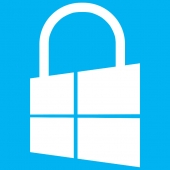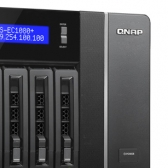-
CryptoWall 4.0 released with new Features such as Encrypted File Names
A new version of CryptoWall has been released that displays a redesigned ransom note, new file names, and now encrypts a file's name along with the data as well. A new version of CryptoWall has been released that displays a redesigned ransom note, new file names, and now encrypts a file's name along with the data as well.
- November 03, 2015
- 09:20 PM
 19
19
-
New helpme@freespeechmail.org Ransomware can be Decrypted for Free
A new ransomware has started to become seen on various computer support forums that encrypts your data and then appends the helpme@freespeechmail.org string to the filename. Thankfully Kaspersky's RakhniDecryptor tool is able to decrypt this infection.
- November 03, 2015
- 04:29 PM
 39
39
-
Shoddy Programming causes new Ransomware to destroy your Data
It is bad enough when a ransomware infection encrypts your data and demands a ransom, but it's even worse when shoddy programming destroys it instead. This is what happened in a new variant of the Power Worm ransomware where bad programming encrypts your data using AES encryption and then throws away the key
- October 30, 2015
- 02:55 PM
 6
6
-
Latest TeslaCrypt Ransomware adds the .ccc extension to Encrypted FIles
A new version of TeslaCrypt has been released that is now using the ccc extension when encrypting files. This version utilizes the same payment site as previous variants and requires a 2 bitcoin, or approximately $500 USD, ransom in order to decrypt your files.
- October 26, 2015
- 01:35 PM
 2
2
-
Apple Releases Security Updates for OSX, iWatch, Safari, and More
Today Apple released numerous security updates that resolve a total of 142 vulnerabilities in their iOS, watchOS, OSX, iTunes, and Safari products. Some vulnerabilities are the same throughout various Apple products if they share a similar codebase.
- October 21, 2015
- 03:38 PM
 0
0
-
Help recover files.txt Ransomware installed by targeted Remote Desktop or Terminal Services Attacks
A new file-encrypting ransomware has been discovered that appears to be installed via targeted Remote Desktop or Terminal Service attacks. This ransomware, which we call LowLevel4, encrypts your data with AES encryption and then demands 4 Bitcoins to get your files back.
- October 20, 2015
- 05:42 PM
 1
1
-
Microsoft releases Flash Security Update for Internet Explorer
Microsoft released today a security update for Internet Explorer 10, Internet Explorer 11, and Microsoft Edge that updates the bundled Adobe Flash libraries. This patch is only available for users of Windows 8, Windows Server 2012, Windows RT, Windows 8.1, Windows Server 2012 R2, Windows RT 8.1, and Windows 10.
- October 19, 2015
- 07:18 PM
 0
0
-
Adobe releases Emergency Update for latest Flash Exploit
Adobe has released an emergency update that resolves 3 critical security vulnerabilities, including the one that was discovered by TrendMicro this week. All three of these vulnerabilities could allow an attacker to remotely execute commands on a vulnerable computer.
- October 16, 2015
- 12:38 PM
 2
2
-
2015 was the worst in history for OSX malware
A new report from Bit9 and Carbon Black details how 2015 was the worst year in history for OSX malware. In a 10 week study conducted by both organizations it was discovered that 2015 had 5 times more malware than all of 2010-2014 combined. OSX users need to take security seriously or they are bound to be affected by future malware.
- October 16, 2015
- 09:20 AM
 0
0
-
Update for latest Flash vulnerability expected on October 19
The latest zero-day exploit for Flash that was reported by TrendMicro is expected to be patched by an Adobe updated coming out on October 19th. This exploit is a critical vulnerability as it allows attackers to create specially crafted web pages that can execute any command on your system.
- October 15, 2015
- 02:41 PM
 2
2
-
Is Microsoft adding TeslaCrypt Detections important to you?
Microsoft recently announced that they have updated their malicious removal tool to detect and remediate the TeslaCrypt ransomware infection due to the increased distribution and activity detected in August. This announcement just means that Microsoft has added further detection for this ransomware and will remove it via MSRT.
- October 14, 2015
- 09:51 PM
 3
3
-
Microsoft Patches 3 Critical Updates
If you have not updated Windows this week, then you need to get updating. Yesterday Microsoft released six security updates, with three of them being marked as critical. If you have not updated Windows this week it is imperative that you do so as soon as possible.
- October 14, 2015
- 06:16 PM
 0
0
-
TrendMicro announces Zero-Day Flash Exploit just as Adobe releases Today's Update
Today just as Adobe released a giant update for Flash and Reader that resolves numerous critical vulnerabilities, TrendMicro announced that they have discovered another new unpatched zero-day exploit in Flash. This exploit is actively being used by attackers in spear-phising emails against several Ministries of Foreign affairs.
- October 13, 2015
- 07:14 PM
 1
1
-
Adobe releases Security Updates that Fix 69 Vulnerabilities
New updates are available for Adobe Acrobat, Reader and Flash Player that resolve numerous security vulnerabilities. These 2 updates resolve a whopping 69 vulnerabities, with many of them being labeled as critical. These vulnerabilities range from information disclosure to remote code execution.
- October 13, 2015
- 01:58 PM
 1
1
-
Vulnerability Discovered in QNAP QTS Operating System
A new vulnerability has been disclosed for the QTS operating system used by QNAP storage devices. This vulnerability allows remote OSX users to potentially read and write arbitrary files on a QNAP device through the Apple Filing Protocol (AFP).
- October 12, 2015
- 01:18 PM
 0
0
-
Netgear Routers under Attack. Learn how to Protect Yourself!
Threatpost has reported that there is a publicly disclosed vulnerability in Netgear routers is currently being used by attackers to modify a router's DNS entries. All users of Netgear routers should immediately disable Remote Administration. with instructions found in this article.
- October 08, 2015
- 04:29 PM
 4
4


 39
39




















